
Jonathan Lambert was a staff writer covering biological sciences at Science News from 2019 to 2021. He earned a master’s degree from Cornell University studying how a bizarre day-long mating ritual helped accelerate speciation in a group of Hawaiian crickets. A summer at the Dallas Morning News as a AAAS Mass Media fellow sparked a pivot from biologist to science journalist. He previously wrote for Quanta Magazine, NPR, and Nature News.

Trustworthy journalism comes at a price.
Scientists and journalists share a core belief in questioning, observing and verifying to reach the truth. Science News reports on crucial research and discovery across science disciplines. We need your financial support to make it happen – every contribution makes a difference.
All Stories by Jonathan Lambert
-
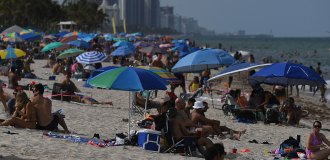 Science & Society
Science & SocietyThe U.S. largely wasted time bought by COVID-19 lockdowns. Now what?
As states reopen, most don’t have adequate systems in place to test, trace and isolate new COVID-19 cases, setting the stage for future outbreaks.
-
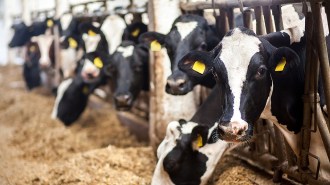
50 years ago, scientists first investigated antibiotic resistance in livestock
In 1970, scientists began investigating the effects of feeding antibiotics to livestock. 50 years later, we know it can be harmful for humans.
-
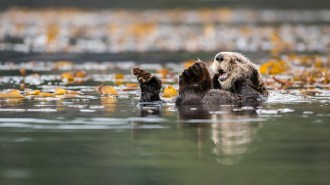 Ecosystems
EcosystemsBringing sea otters back to the Pacific coast pays off, but not for everyone
Benefits of reintroducing sea otters in the Pacific Northwest, such as boosting tourism, vastly outweigh the costs, a new analysis shows.
-
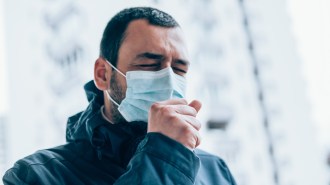 Health & Medicine
Health & MedicineNo, you can’t hear the difference between sick and healthy coughs
A study shows humans can’t distinguish between the sound of a cough from someone with an infectious disease and someone with a tickle in the throat.
-
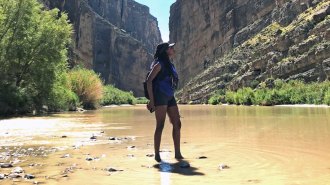 Science & Society
Science & SocietyA #BlackBirdersWeek cofounder aims to amplify black nature enthusiasts
Wildlife biologist Danielle Belleny hopes the social media campaign represents black birders and nature enthusiasts of color in a hobby often stereotyped as white.
-
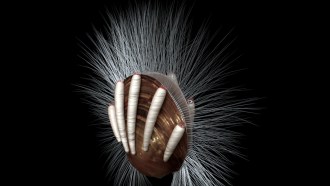 Life
LifeThese tube-shaped creatures may be the earliest known parasites
Fossils from over 500 million years ago might be the first known example of parasitism in the fossil record, though the evidence isn’t conclusive.
-
 Health & Medicine
Health & MedicineInfecting people with COVID-19 could speed vaccine trials. Is it worth it?
To accelerate vaccine development, some experts argue we should purposefully infect volunteers with the coronavirus. Others warn of the risks.
-
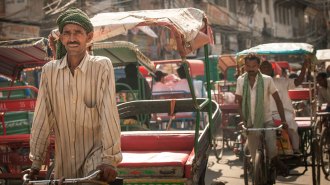 Earth
EarthDeadly temperatures expected to arrive later this century are already here
Temperatures near humans’ physiological limit have doubled in frequency since 1979, exposing millions of people to dangerously hot and humid conditions.
-
 Health & Medicine
Health & MedicineTo end social distancing, the U.S. must dramatically ramp up contact tracing
Life after social distancing may involve apps that ask you to self-isolate after you’ve been near someone who tests positive for COVID-19.
-
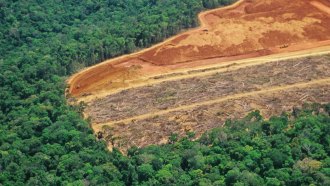 Life
LifeHow much space does nature need? 30 percent of the planet may not be enough
Nations are drafting a plan to protect 30 percent of Earth by 2030 to save biodiversity. The number reflects politics more than scientific consensus.
-
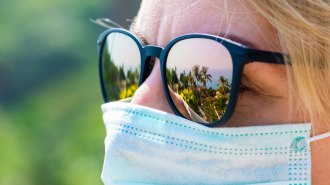 Health & Medicine
Health & MedicineWarm weather probably won’t slow COVID-19 transmission much
While some evidence has suggested higher temperatures can affect coronavirus transmission, summer’s arrival probably won’t curb the pandemic much.
-
 Health & Medicine
Health & MedicineWhen will the coronavirus pandemic and social distancing end?
Social distancing may have to continue for months to prevent a resurgence of COVID-19. Wider testing and isolation of cases could ease such measures.